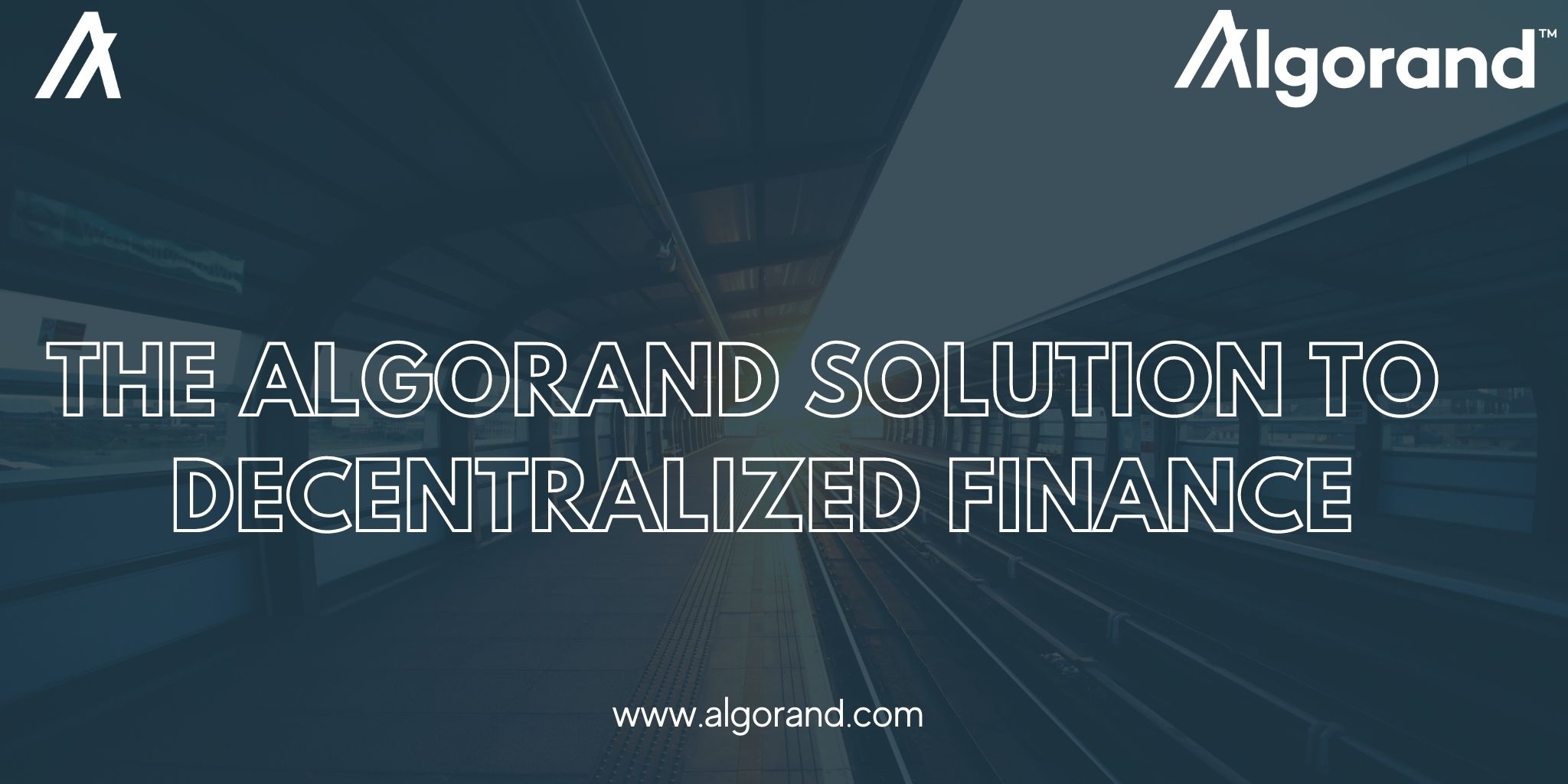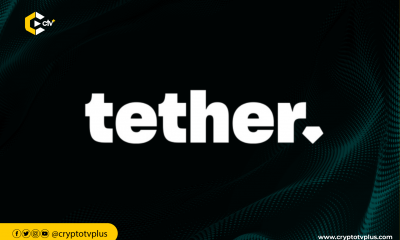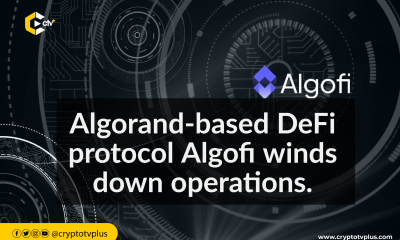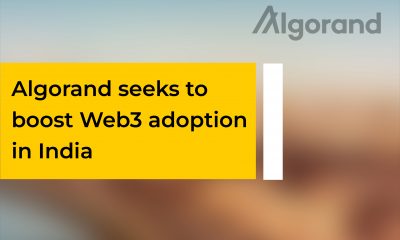News
The Algorand Solution to DeFi (Decentralized Finance)

DeFi(Decentralized finance) has seemingly been the rave in the blockchain sphere for the past year. It has gained fast adoption and popularity in the space as it has been favored as an adequate replacement for CeFi(Centralized Finance) services.
As the financial ecosystem continually clamour for permissionless and transparent financial services and solutions, DeFi solutions with applicable use cases continue to spring up as well and this gradual rise and adoption of DeFi services and solutions will eventually lead to global scale adoption of DeFi services as the paramount solutions in the blockchain sphere.
Let us take a brief overview into what DeFi really is :
DECENTRALIZED FINANCE
Decentralized finance is a finance ecosystem designed to provide permissionless, transparent and ease-of-use financial services to everyone globally without a central governing authority. Being transparent, it also means it is open source, hence it’s structure and architecture is readily available to anyone globally. CeFi on the other hand is quite different. CeFi has a central governing authority that serves as the law and also holds custody of users funds.
It is not permissionless as users have to go through KYC and AML regulations which are sometimes rigorous and restricted to individuals from a certain geographic region. These factors and a host of others has been the reason for the growing preference of DeFi over CeFi.
THE ALGORAND PROTOCOL
Algorand is a high performance blockchain built to create a transparent ecosystem for building decentralized solutions and projects. It solves the blockchain trilemma efficiently. Combining scalability, decentralization, and security without leaving any out. Blockchain solutions developed over the years have tried to solve this trilemma but it has been without success.
The three core ethos of blockchain technology are Decentralization, Scalability and Security. The bitcoin blockchain and other subsequent blockchains have tried without fail to have all three properties but the most they can have is a maximum of two as one property is traded off. This is the “Blockchain trilemma”.
The Algorand protocol offers scalability, decentralization and security without trading any one off. These technical barriers to efficient blockchain protocol has been removed by Algorand.
The Algorand protocol is run on a Pure proof of stake consensus built on a byzantine agreement. This simply means that there is no central authority for consensus to be achieved and it is truly decentralized as well. All users have the chance to propose and vote new blocks to the blockchain. Probability is dependent on the user’s stake of Algos (Algorand’s native currency) owned.
So there is no centralization because everyone on the blockchain can propose blocks. Not a few individuals or subset of miners.
HOW IT WORKS
In Algorand, A unique committee of users is randomly and secretly selected to approve every block on the chain. Now how are the committee members selected in other to ensure fairness First, we recall that all users have eligibility to propose new blocks to the blockchain, but then the probability is dependent on the amount of Algos they have staked. The block proposal and voting occurs in two phases.
PROPOSAL : Every user plays a special cryptographically fair lottery where their chances of being selected as the block proposer is dependent on their stake. If a user wins the lottery, their public key becomes known to all users and they can propose, sign and propagate a new block.
AGREEMENT : After the user proposes the block, the 1000 man committee have to agree on the block. These 1000 users are also chosen randomly by playing the cryptographically fair lottery too. Their keys are known as well. They reach agreement on the block and sign it too. This single round of voting finalizes the process and the block is added to the chain.
This straightforward consensus protocol is an ingenious one which solves the blockchain trilemma and also serves as an efficient and resourceful platform for building decentralized solutions on.
WHY DEPLOY DECENTRALIZED FINANCE SOLUTIONS ON ALGORAND?
The Algorand protocol is the ideal blockchain. Developers looking to develop efficient DeFi solutions with an efficient blockchain infrastructure should look into the Algorand protocol.
Here are a few reasons to do so.
SELF GOVERNANCE: The Algorand protocol does not have a central governing authority. Every user on the blockchain is eligible to decide and propose new blocks to be added to the blockchain. This self governing model correlates with the decentralized model of DeFi solutions not being governed by a central authority. Hence Algorand would be the optimum tool for developers to build on.
OPEN SOURCE : The Algorand node repository is open sourced and it is readily available for users to audit and deploy solutions upon. Transparency, inclusivity, and collaboration are the core principles of the ecosystem and it is maintained by a dedicated community of global users who share Algorand’s same vision of a decentralized, borderless future. Transparency provides trust for the users and is one advantage DeFi has over CeFi.
PERMISIONLESS : The Algorand protocol is open and public to all. Everyone from around the globe can participate in it. Users do not have to go through KYC and AML regulations which prevents users from accessing financial services on certain instances. Since there is no central governing authority, every user has access to the protocol and can also take part in decision making too.
EASE OF USE FOR DEPLOYMENT: Algorand’s open source implementation makes it easier and faster for developers to deploy on blockchain. Its developer enablement program encompasses Java, JavaScript (node.js and browser), and Go SDKs, REST APIs and comprehensive developer resources and collaboration tools. There are articles, documentations, tutorials and solutions on its developer resource page to enable developers new to Algorand start deploying solutions on Algorand.
CUSTODY OF FUNDS : In the Centralized Finance ecosystem, the custody of users funds belong to the central governing authority. This is risky as funds could be lost when the central authority is attacked via cyber hacks. On Algorand, users have 100 percent custody of their funds. It remains in their wallets and can be withdrawn whenever they want without any hitches.
SECURE INCENTIVES: In Algorand, the power is in the hands of the users holding stake. Every user receives an amount of rewards proportional to their stake for every block that is committed to the chain.So users can stake Algos in their wallets and when a new block is added to the chain rew
ards are given to them based on their staking amount. Algorand does this to encourage users to join the Algorand platform and accelerate the path to decentralization.
LOW FEES: Algorand platform requires minimal processing power and modest IT resources to join. All online users who possess Algos are automatically eligible to participate in block consensus. The protocol is designed so as to minimize the cost of participation. Thus, there is no barrier for users that choose to participate.
The DeFi ecosystem is still in its inception stage as it is still being considered as an alternative to CeFi. It has also been wrought with negative remarks about it due to recent hacks on some DeFi services in recent times.
It is very likely that in coming years, it would be a solid replacement to DeFi as it seems promising and a tool and platform such as Algorand with its scalability, decentralization and security is readily available for deploying solutions.
Written by Ubong Ephraim
























